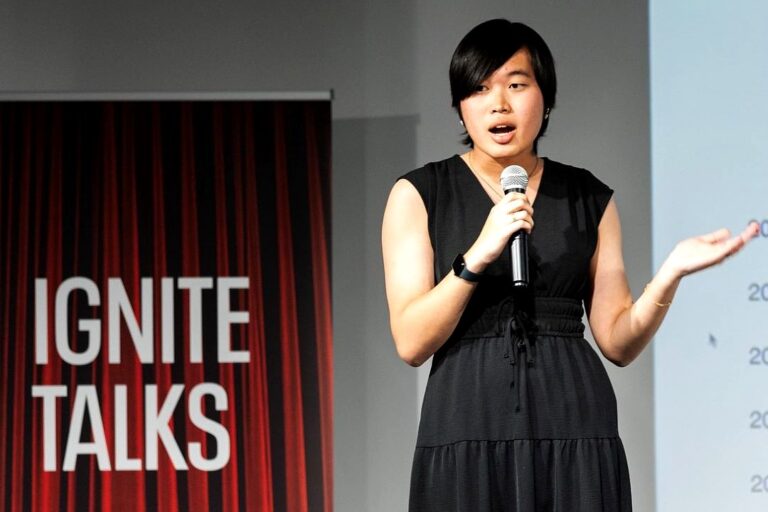Marohang Yakthung Limbu, Associate Professor in the Department of Writing, Rhetoric, and American Cultures at Michigan State University, won the prestigious Bishnudatta-Saraswati Academic Award in Nepal for his book Delinking, Relinking, and Linking Writing and Rhetorics: Inventions and Interventions of the Sirijanga Syllabary.
This award, established in 2017, encourages and honors individuals, groups, or organizations who play an important role in publishing works based on in-depth research on the Yakthung language, culture, history, Indigenous knowledge, politics, and social issues in Nepal and India.

Dr. Limbu’s book traces the invention, intervention, and reinvention of the Sirijanga writing system, Himalayan Indigenous oral traditions, politics, writing, and rhetorics. Based on fieldwork in four countries across four continents — Nepal, India, the United Kingdom, and United States — the book investigates a less explored area of culture, language, rhetoric, and writing in a non-Western and Indigenous context.
Relying on oral history, archival and archeological research, and interviews, Limbu’s book explores how culture, language, and oral traditions of an Indigenous community survived inhospitable political regimes in Nepal, Sikkim, and India, and how the community and network of Yakthung activists across contingents are working to preserve and expand it after the advent of open political regimes in South Asia.
“Many people die without knowing who they were, who they are, or who their children should be. That’s one of the reasons I theorized delinking, relinking, and linking theory and wrote the book.”
The book employs Limbu’s own delinking, relinking, and linking theory, which addresses ideas of identity and connection, to trace the development of Himalayan Indigenous writing and rhetorics and offers concise approaches on how to research and digitally document less explored cultures and endangered languages.
The delinking, relinking, and linking process begins with delinking in which you detach from how you have been taught, raised, and/or programmed in a (para)colonial context. You then move to relinking where you explore your own cultural identity and history.
“Relinking means to explore who your ancestors (Yehang and Thibong Yakthungs) were and what kind of Himalayan Yakthung oral traditions and cultural customary traditions they constructed and practiced,” Limbu said. “Many people die without knowing who they were, who they are, or who their children should be. That’s one of the reasons I theorized delinking, relinking, and linking theory and wrote the book.”

The process concludes with linking, which involves linking your newfound and explored knowledge of your history, language, and culture to other regional and global cultures and histories in the context of the 21stcentury.
“The reason I created the theory is we tend to talk only about decolonization, and people sometimes express their anger and frustration with the colonizers,” Limbu said. “Delinking, relinking, and linking can be applied in cultural studies. It can be applied anywhere. Many theories talk only about decolonizing; it creates another layer of dichotomy, and it doesn’t translate into practice well. We have to link; then, we can make this world a better place to live in by linking everyone together — your narratives, histories, thinking process, whatever theory, philosophy, and practice you have — we have to link them together to become one out of many. I also apply this theory into practice in my classes.”

Dr. Limbu also runs, co-hosts, and directs a popular YouTube channel, called the GLOBAL NETWORK, which has thousands of subscribers. The channel contains research-based videos that have received hundreds of thousands of comments and views. This global network of scholars, historians, cultural activists, writers, and students is dedicated to the study, exploration, and re/construction of ancient Sawa Yehang and Thibong Yakthung Himalayan Indigenous histories, cultures, customary traditions, and matriarchal/matrilineal identities.
The GLOBAL NETWORK provides a platform for digital documentation of these histories as well as an opportunity for delinking, relinking, and linking local, regional, and global theories and practices. It has allowed Limbu to test his research findings (as public peer review), including his delinking, relinking, and linking theory.
“I was really happy to have won this award. Happy for myself and happy for those people who supported my research and/or gave me that precious data, facts, figures, and information.”
“I wanted to see what people thought about my findings, what people thought about my research, and what people thought about my theory and philosophy and the way I galvanize,” Limbu said. “Gradually, people started appreciating it.”
This snowballed into academic recognition and respect. The Bishnudatta-Saraswati Academic Award honors Limbu’s revolutionary, innovative, and valuable research.
“I never knew that audience valued my theory, findings, analyses, and interpretations. I never thought they appreciated it,” Limbu said. “I was really happy to have won this award. Happy for myself and happy for those people who supported my research and/or gave me that precious data, facts, figures, and information.”


